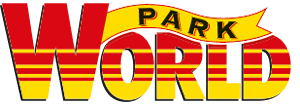Adding value to amusement businesses

Amusement venues and their suppliers provide a unique form of entertainment. As with many businesses, when aspects of the offering are lucrative, they may be worthy of protection so they cannot be duplicated and used by those with inferior products or services. Heather M Eichenbaum Esq and Timothy J Szuhaj Esq explain how amusement venues can protect their value assets.
To attract guests and gain market share, amusement businesses must differentiate themselves from their competitors’ attractions. One fundamental, although often misunderstood and under-utilized, means for achieving this goal is the use of trademark protection.
A trademark is a form of intellectual property and is usually comprised of a name, phrase, symbol, logo, image, word, or a combination of these elements. By definition, trademarks have essentially two functions. First, they differentiate goods and services from one another, and they also project distinct commercial impressions regarding the qualities and attributes of those goods and services.
In marketing terms, trademarks create brand awareness and brand equity, which translates into increased revenue for their owners and users. Isn’t that the ultimate goal of all amusement businesses?
Registered Trademarks
Before jumping in and registering a mark, it is important to understand some of the many issues and practicalities related to trademark usage and acquisition. First, trademarks in general, and US Federal Trademarks in particular, are not like obtaining a trade name or website domain name. Just because no one else has the “mark” registered does not mean that it can be simply bought and owned like a domain name. Trademark rights relate to use of the mark; registration does not create these rights; it only enhances them.
A Federally registered trademark can be enforced anywhere in the United States, while the protection provided by an unregistered trademark may be limited to, for instance, a local geographical area where the unregistered mark is in use and recognised. Trademarks are identified by a ™ if they are unregistered and by a ® if they are registered.
Businesses should account for the costs and timing of registration. A Federal Trademark application costs $325 per class of goods and services and, on average, takes 12 to 18 months to proceed through the statutory review process and mature into a registration, if there are no “bumps” in the road. Those bumps can be substantial, resulting in costs and delays – and sometimes are fatal to the application.
Owners of a Federally registered trademark and an unregistered trademark may both file legal proceedings for trademark infringement to prevent unauthorised use of their trademarks or confusingly similar marks; however, the ability to seek recourse against an infringer is more restricted for the owner of the unregistered mark.
Having taken the above into account, if you are interested in acquiring and/or registering the rights to a trademark, you must chose a mark that is capable of functioning as a trademark as defined by law. Trademarks (and their cousins for services, service marks) are generally defined as follows:
A trademark is a word, phrase, symbol or design (or a combination of words, phrases, symbols or designs) that identifies and distinguishes the source of the goods of one party from those of others.
A service mark is the same as a trademark, except that it identifies and distinguishes the source of a service rather than a product.
Throughout this article, the terms “trademark” and “mark” refer to both trademarks and service marks. In short, a trademark is a label or “tag” that identifies the source of certain goods or services.
In contrast, the name of a business or company is a trade name. The terms “trade name” and “commercial name” mean any name used by a person to identify their business or vocation.
Trademarks Vs Trade Names
In the United States, the Trademark Act does not allow registration of trade names. Trade names are not trademarks and serve separate and different functions – they identify a business or corporate entity. Stated another way: a trademark used in text is an adjective, while a trade name is always a noun. For example: ABC™ Amusement Park = trademark and ABC Inc, ABC Enterprises and ABC LLC = trade name.
However, it is common for businesses to use the same terms for their trade name and their trademark. This practice is perfectly acceptable as long as the appropriate measures are taken to ensure that the appropriate use of the term is maintained. Nevertheless, it is very important to keep in mind that merely registering and using a trade name does not guarantee corresponding trademark rights in the term or phrase.
For example, Six Flags Inc utilises the Six Flags® mark to distinguish its attractions from those of competitors. Likewise, any amusement venue or enterprise can protect itself from replication simply by protecting its name through a separate registration of the trade name and the use of registration of a distinguishing trademark.
When choosing a trademark, we highly recommend a careful and thorough trademark search with a written explanation of the scope and results of the search. At a minimum, such reports should include the scope of the search, the relevant results, and the possible problems the proposed mark may have from a registration and third party claims perspective. The decision to pursue registration is left to the business judgement of the potential applicants.
There is a vast array of variables affecting availability and many strategies for addressing each. Consulting a trademark lawyer is essential for the business owner to gain an understanding of these variables and options. Moreover, one must be careful to use only an experienced and insured trademark lawyer. The field of intellectual property can be tricky and a single mistake can cost a business the exclusive use of its trademark. Of course, it should go without saying that simply adding the ™ or ® symbol after a term or phrase or logo does not offer the same protection as an actual trademark registration!
Amusement businesses that are not aware of these issues can, at the very least, be unpleasantly surprised when these issues inevitably arise and, at worst, businesses may have to spend considerable time and money pursuing registration of a mark, or pursuing an infringing competitor, with potentially unsatisfactory results.
What It Means To You
Now, understanding some of the issues surrounding trademarks, what use are they to you, the typical amusement venue? Each ride at your park may be named with a catchy title that is used in your advertising. The last thing you want is another park opening a ride with the same or confusingly similar name, whether it is an identical ride, an inferior ride, or, perhaps worst, an even better ride. The answer is to obtain a trademark registration associated with that ride, if the mark is available. The same may apply to seasonal events, such as Halloween celebrations.
You may offer food items, themed or somehow geared toward your venue. Again, you do not want that name “stolen” and used elsewhere. It should be trademarked, if possible. Even a game of chance may be suitable for trademark protection. Once again, protecting the game with a valid trademark will ensure that you are the only venue that enjoys the success of that game.
The examples in this article relate to US law and practices, but serve as a useful guide in some other parts of the world. However, you are advised to seek professional advice before registering a trademark in your country.
About the authors
Heather Eichenbaum and Tim Szuhaj are attorneys with Spector Gadon & Rosen PC, practicing in Pennsylvania and New Jersey. Ms Eichenbaum concentrates her practice in defending amusement and recreation venues, including theme parks and waterparks, as well as providing frequent training. She is national legal counsel to NAARSO and a member of, amongst others, IAAPA, NJAA, OABA and IISF.
Mr Szuhaj concentrates his practice in domestic and international intellectual property rights and issues and is a member of American Intellectual Property Law Association and the International Trademark Association.
Ms Eichenbaum can be reached at +1 215 241 8856 or at heichenbaum@lawsgr.com should you need legal assistance or if you have questions you would like to see addressed in Park World’s Park Law column.

